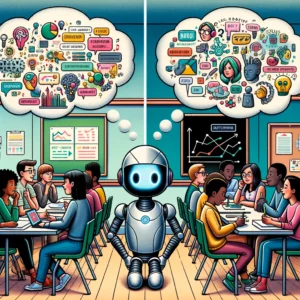It seems paradoxical but it’s not.
Children’s stories capture our imagination, make us wonder, and reveal the inherent mysteries of life in the simplest and most profound ways.
They can also motivate teachers and students of all grade levels and subjects to ask essential questions.
The University of Washington Center for Philosophy of Children has a treasure trove of over 100 children’s stories along with innovative ideas on how to use these stories to introduce essential questions in the classroom. Most of the stories can be adapted seamlessly to fit the middle and high school audience.
Consider these stories and the essential questions they inspire:

The Giving Tree by Shel Silverstein
Is the proper role of government to help citizens or to encourage citizens to help themselves?
The Big Box by Toni Morrison
Who gets to decide who is free? or What does it mean to have freedom?

If you Give a Mouse a Cookie by Laura Numeroff
Are historical events determined to happen or can humans change the course of history through their choices?
You might think you can’t use children’s stories, especially in a high school class! It’s too basic and simplistic. The kids will think you are insulting their intelligence.
Dispense with this thinking! Each time you use a children’s story, you draw upon something familiar and create a safe space for them to think. It’s the perfect entry point for asking essential questions.
The best part is that you can come back to the children’s story repeatedly as you work your way through different units, all the while reinforcing the importance of the original essential question the story inspired.
Other posts you may like…
Essential questions and the Power of Storytelling






